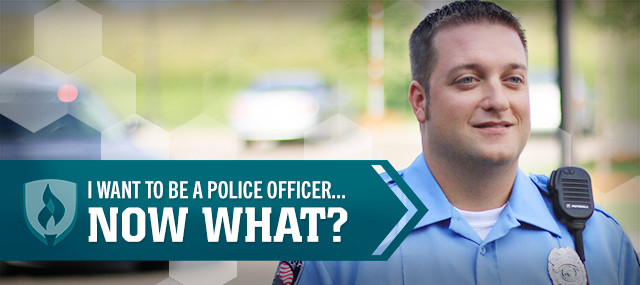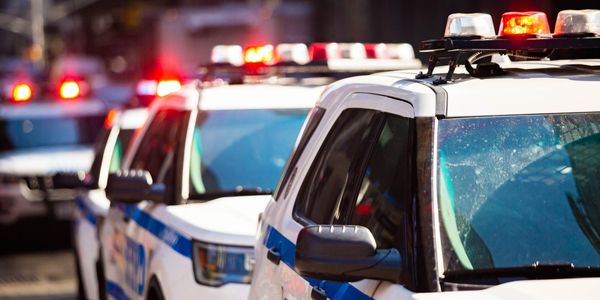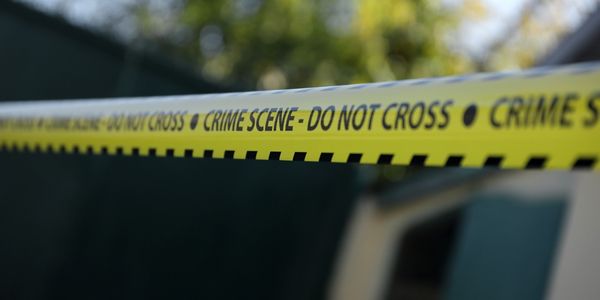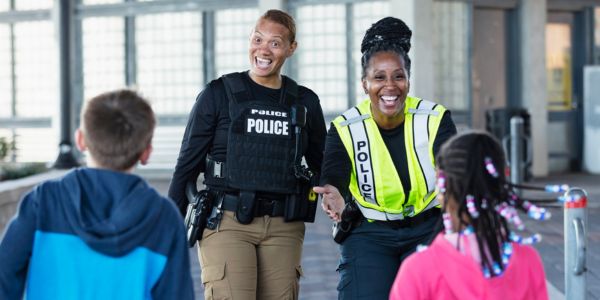
When you ask young children what they want to be when they grow up, a handful of them will likely say, “I want to be a police officer.” It seems like a glamorous gig to a wide-eyed kid, but the reality of the job becomes clearer with age.
Most people understand the risks and sacrifices that come with protecting and serving a community. It’s not an ideal industry for everyone, but you’re one of the select few who believe becoming a police officer is worth all of that. You want to be a part of something bigger than yourself. You are gearing up to join the ranks of those who have dedicated their lives to keeping others safe.
Now you probably have some questions about what comes next. From industry info to education and training to necessary skills, you want to know all of the answers. We identified some of the most common questions someone in your shoes is likely asking.
FAQs for prospective police officers
What is the job outlook for police officers?
The job outlook for police officers and detectives is expected to remain stable in the coming years with employment projected to grow five percent from 2012 to 2022, according to the Bureau of Labor Statistics (BLS). The field is a competitive one to conquer but there are ways to set yourself apart with skills, education and experience.
Additionally, many agencies will provide you with options to retire after just 20-25 years on the force.
What skills & qualities do you need to become a police officer?
A good police officer will have a wide array of skills and qualities. Below are a list of some common skills and characteristics you should be able to demonstrate when you apply.
- Communication: You should be able to communicate clearly— both written and verbal— in order to express details about a crime with other investigators or alert the public or media about recent findings.
- Empathy: You will need an innate desire to help people and promote their overall wellbeing. You should be able to understand where others are coming from and know how to empathetically handle family, friends and the general public when tragedy strikes.
- Good judgment: You will inevitably encounter scenarios in which you’ll need to make difficult decisions quickly. Being able to think critically and employ sound judgment will help you confidently determine the best course of action.
- Leadership: Police officers are a pillar of every community. Every time you put on that uniform, the public will be looking to you for security and assurance. You’ll need to be comfortable assuming a leadership role in society.
- Perceptiveness: Police officers must be perceptive in that they’ll need to be able to anticipate people’s actions and reactions. Being able to predict what a suspect is going to do next will allow you to act accordingly and be prepared for anything.
What education & experience are needed to become a police officer?
Education and experience requirements will vary for each agency, though most require at least a high school diploma. Generally departments prefer you have at some college coursework or a finished degree and some even require it. Regardless, consider a degree in law enforcement an asset—especially if you have aspirations of working your way up through the ranks.
Having experience in the military or fluency in multiple languages is also a plus for prospective police officers. Most applicants will also have to undergo recruit training before earning their badge. This training includes additional classroom learning and supervised field experience.
What are the physical requirements for becoming a police officer?
Though Hollywood and newspaper comics often portray police officers as roly-poly doughnut lovers, physical fitness is a prerequisite for aspiring police officers. Not only will you need to pass rigorous physical exams to enter the field, but you’ll need to maintain that fitness level to keep up with the daily challenges of the job.
Exact requirements will vary from precinct to precinct, but you can expect to have to meet specific standards for push-ups, sit-ups, a 1.5 mile run and a 300 meter run.
Be sure to research your state’s specific standards and plan on implementing a workout routine in order to ensure you surpass the requirements.
What other ways can you prepare to be a police officer?
If you want to stand out from other aspiring officers, you’ll want to focus on more than just education and exercise. Volunteering with a local police department or community service organization is a great way to add some extra experience to your resume.
You will get a sneak peek of some of the service work you will do as an officer and have opportunities to hone the skills you will employ later in your career. What’s more is that you’ll make valuable connections with individuals who may be able to help you in the future when you’re applying for full-time positions.
Check out our article, "8 Things They Almost Always Get Wrong in Police TV Shows".
What’s next?
You’re now aware of some of the steps you’ll have to take in order to go from saying, “I want to be a police officer” to “I’m proud to be a police officer!” Now that you’re questions are answered, it’s time to take the next step.
Learn more about how a Degree in Law Enforcementcan help you make your dream into a reality.
Related Articles
- Police Perspective: The Pros & Cons of Police Body Cameras
- 8 Things You Didn't Know About the Rasmussen University Law Enforcement Program
- Patrol Officer vs. Sheriff's Deputy vs. Correctional Officer: Which Law Enforcement Job is Right for You?
- Police Officer Workout Routines that Will Get You in Service Shape
- Police Heroes: Law Enforcement Officers Recall Their Best Days on the Job




